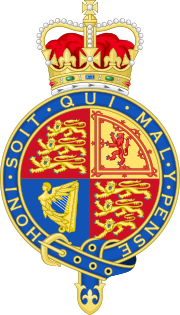| Hodge v R | |
|---|---|
 | |
| Court | Judicial Committee of the Privy Council |
| Decided | 15 December 1883 |
| Citation(s) | [1883] UKPC 59, [1883] 9 AC 117 |
| Case history | |
| Appealed from | Court of Appeal of Ontario |
| Court membership | |
| Judges sitting | Lord FitzGerald, Sir Barnes Peacock, Sir Robert P. Collier, Sir Richard Couch, Sir Arthur Hobhouse |
| Case opinions | |
| Decision by | Lord FitzGerald |
| Keywords | |
| double aspect, matters of a local or private nature | |
Hodge v R[1] is a famous Privy Council decision on interpreting the Constitution of Canada. This was the first time the doctrine of double aspect was applied to division of powers analysis.
YouTube Encyclopedic
-
1/3Views:10 34310 479578
-
Differential Forms | The Minkowski metric and the Hodge operator.
-
Differential Forms | The Hodge operator.
-
Meet the Faculty: Candice Hodge, PhD
Transcription
Background
Under the Liquor Licence Act[2] (known as the "Crooks Act" after Adam Crooks), the Legislative Assembly of Ontario delegated authority to the License Commissioners of Toronto to pass a resolution that prohibited the use of billiard tables during any time that the sale of alcohol was permitted.
Archibald Hodge was licensed to sell liquor in his tavern, and was also licensed to operate a billiard saloon. In May 1881, he was convicted of allowing a billiard table to be used during the hours authorized for selling liquor. He sued in the Court of Queen's Bench to have the conviction quashed, on the grounds that:
- the resolution of the License Commissioners was illegal and unauthorized,
- the License Commissioners had no authority to pass such a resolution, and
- the Liquor Licence Act was ultra vires provincial jurisdiction.
Court of Queen's Bench
In June 1881, the Court of Queen's Bench, in a unanimous ruling, quashed the conviction. In his judgment, Hagarty CJ held that the Legislative Assembly could not delegate to another body that the authority to create offences.
Court of Appeal for Ontario
In June 1882, on appeal, the Court of Appeal for Ontario reversed the Queen's Bench decision and affirmed the conviction. Opinions rendered by Spragge CJ and Burton JA, which were joined by Patterson and Morrison JJ, held that the Assembly had jurisdiction to legislate in the matter and that it could delegate its authority to another body.
On those points, Hodge appealed to the Privy Council.
Privy Council
The Appeal Court decision was upheld by the Privy Counci. In his ruling, Lord Fitzgerald held that the province had the authority to delegate any of its residual powers under section 92(16).
Fitzgerald examined the pith and substance of the law that delegated the power to the commission. It was noted that:
the powers intended to be conferred by the Act in question, when properly understood, are to make regulations in the nature of police or municipal regulations of a merely local character for the good government of taverns... and such as are calculated to preserve, in the municipality, peace and public decency, and repress drunkenness and disorderly and riotous conduct.
The Act, however, also touched on powers that were exclusively in the authority of the federal government, as had been recently determined in Russell v. The Queen. Fitzgerald distinguished that fact with what is now the doctrine of double aspect: "subjects which in one aspect and for one purpose fall within sect. 92, may in another aspect and for another purpose fall within sect. 91."
Consequently, when a law has some overlapping characteristics between the two heads of power, it may still be valid.
References
- ^ Hodge v The Queen (Canada) [1883] UKPC 59, [1883] 9 AC 117 (15 December 1883), P.C. (on appeal from Ontario)
- ^ Liquor Licence Act, R.S.O. 1877, c. 181
See also
